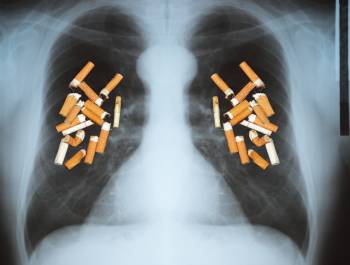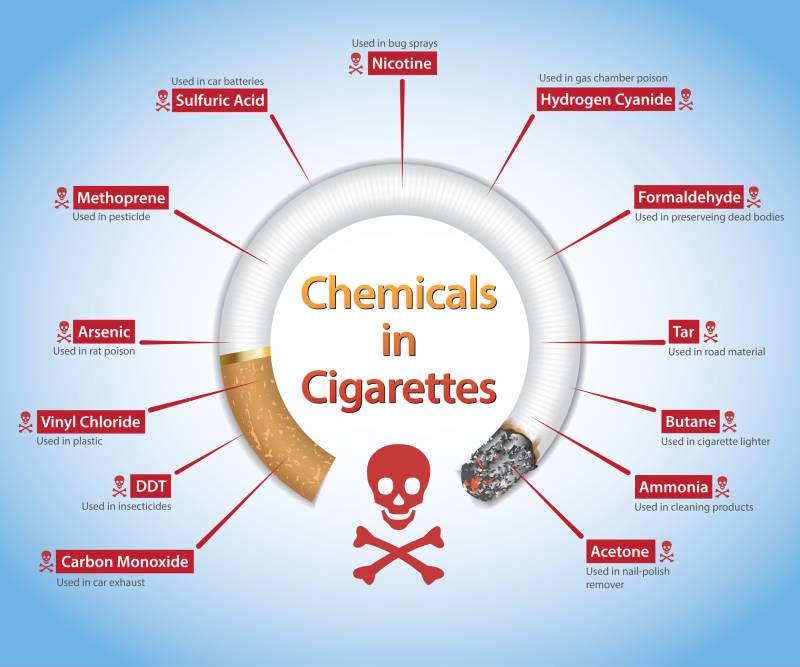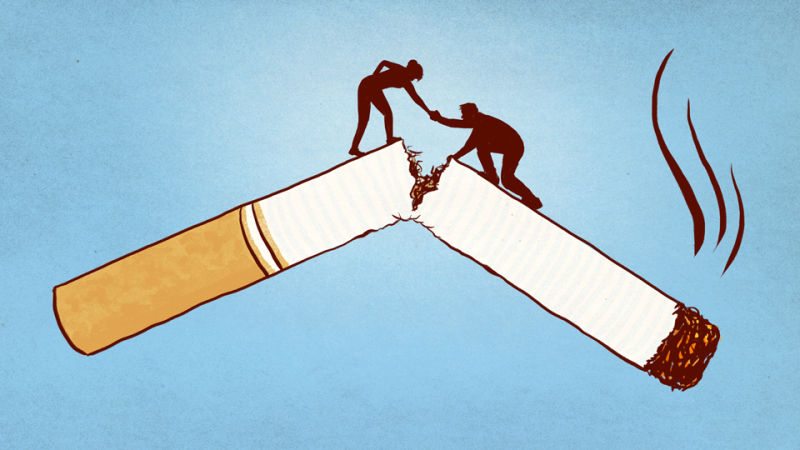Of course it’s not easy to quit smoking. If it was, everyone would do it, right?
“Why don’t you just quit smoking?” Is a frequently asked question – and the questioner makes it sound so easy…
But the fact is, it’s not easy to stop smoking. For most people, no amount of willpower is enough on it’s own. There are also fears about the process of quitting cigarettes. When you stop smoking, it can be a challenging experience. Quitting smoking can have unpleasant side effects. As your body detoxifies and you work to break the addiction, some withdrawal symptoms are to be expected. Also, many people worry that they will gain weight. Many have failed to quit multiple times. They don’t want to deal with another failure.
Yet the choice seems obvious, at least to someone who’s not addicted. Who wants to take a decade off their life span? Who wants to spend what has become a small fortune on cigarettes? Who wants to invite a long list of health issues which include but are not limited to fast heartbeat, elevated blood pressure, headaches, higher risk of stroke, irritated sinus cavities, bronchitis, breathing problems, lung disease, and even cancer (13+ types!).
Smoking and Mental Health
Smokers will say that having a cigarette relaxes them, but in fact the cigarette is relieving stress that smoking caused. It’s a vicious circle. Because of the addiction to nicotine, cravings for the next cigarette cause psychological distress and stress. The “relief” experienced when a cigarette is smoked is temporary relief of the addiction symptoms, which will soon return.
Most smokers have some sense of being out of control and addicted, which can lead to self-esteem issues. Smoking is also closely associated with mental health problems and depression. In fact, about 44% of people with mental illness and/or substance abuse disorders smoke cigarettes, compared to just 18% of the general population. The Center for Disease Control estimates that nearly 1/3 of all cigarettes consumed are smoked by people with mental health conditions.
Smoking is linked to higher levels of depressive symptoms, a greater likelihood of psychiatric hospitalization, and increased suicidal behavior. Evidence suggests that quitting smoking is associated with mental health benefits such as reduced depression, reduced anxiety, and lower rates of suicide.
Smoking also increases the breakdown of medicines in the body, which means smokers may need larger doses of prescription drugs to get the same results as someone who does not smoke.
Wait, How Many Years of Your Life Do You Lose If You Smoke?
Smoking causes premature death. Long-time smokers can expect to lose about 10 years of life expectancy. In fact, it has been said that each cigarette you smoke shortens your life anywhere from 7 to 11 minutes. In other words, the time it takes you to smoke a cigarette is also taken off your lifespan. A pack a day smoker is losing roughly one day of life for every week they smoke.
 What Percentage of Smokers Die from Smoking?
What Percentage of Smokers Die from Smoking?
The health and disease conditions that smoking create heavily impact the quality of life of smokers. They neither look nor feel vibrant and healthy. And this isn’t surprising – smoking tobacco can boost the risk for at least 13 types of cancer. In a study of over 200,000 people, published in 2015, it was found that about 67% of smokers perished from smoking-related illness.
In the United States, cigarette smoking causes about one of every five deaths, including deaths from second-hand smoke.
“If people don’t love themselves enough to cut down on their smoking, they may love someone else enough to do it.”
Causes Of Death Among Smokers
Causes of mortality among cigarette smokers include:
- Lung cancer
- Other cancers (lip, pharynx, oral cavity, esophagus, pancreas, larynx, cervix, uterus, kidney, pelvis, bladder, liver, colon, rectum, also acute myeloid leukemia)
- Coronary heart disease
- Other heart disease (rheumatic heart disease, pulmonary heart disease, other)
- Cerebrovascular disease

- Other vascular disease (atherosclerosis, aortic aneurysm, other)
- Diabetes mellitus
- Pneumonia
- Influenza
- Tuberculosis
- COPD (chronic obstructive pulmonary disease), including emphysema, bronchitis, and chronic airways obstruction.
- Prenatal conditions
- Sudden infant death syndrome
- Residential fires
We might’ve thought smoking was cool as a teenager, but by now all of us are well enough educated understand that smoking kills. And we know it doesn’t just kill us, as it also hurts the people around us. Second-hand smoke is dangerous, and can increase risk in those exposed for many of the issues above. Smoking in pregnant women leads to babies who are more vulnerable to breathing problems and infections after birth, and even an increased risk of SIDS (Sudden Infant Death Syndrome).
And then there are the lesser consequences of smoking: the morning breath, the ashtray mouth, loss of one’s sense of smell and the deadening of one’s taste buds, not to mention shortness of breath. Smokers experience generally poorer health including getting colds more often. There’s the smell on your clothing and in your car, the unpleasantness of dirty ashtrays, and even social challenges.
Smokers often find they can face rejection in dating or even in a job hunt. People simply aren’t as likely to associate with those stuck with an expensive and self-destructive habit.
Why Is It So Hard to Quit Smoking?
Cigarettes contain nicotine, which is a highly addictive substance found naturally in tobacco. Nicotine creates a physical addiction. When it is inhaled, it travels quickly to the brain and can trigger a feeling of stress relief and/or relaxation. It’s a drug, and your body and brain get used to it. 80 to 90% of people who smoke regularly are addicted to nicotine. Because nicotine is a mood altering drug, there can be a psychological as well as a physical addiction. There is some concern that other chemicals added to cigarettes during manufacture could also have addictive qualities.
The Sooner You Kick The Habit, The Better
Quitting smoking is challenging, but the upside benefits of ending your smoking habit are huge. Making the choice for a healthier and longer life, better self-esteem, reduced expenses, improved senses and enjoyment of the world is within your grasp.
Non-smokers get an extra decade of life on average, but even those who kick the habit before age 40 reduce that extra risk of death associated with continued smoking by about 90%, according to the New England Journal of Medicine.
Here in Canada, a pack a day smoker can easily spend over $7000 per year just on cigarettes. Many smokers spend two or three times that amount. Outside of Canada, personal medical expenses can be added to that, as well as time lost from work due to sickness.
Quit Smoking Program
Learn about the time-tested methods we’ve been using for almost 20 years to help you quit smoking while decreasing cravings, ensuring safe toxin disposal, as well as preventing weight gain and other undesirable side effects. Plus help your body recover from the effects of smoking.
You’ll be taken to our dedicated to Quit Smoking Program website.
How Do You Succeed in Quitting Smoking?
We believe there are four keys to successfully stopping smoking, once you make the decision to do so.
Quit Smoking Key #1: Change Your Environment
Reducing smoking triggers is extremely helpful in quitting, as is the stimulation of a new setting to help distract you. Ideally, you’ll be in a relaxing environment with clean air to help your lungs clear up as quickly as possible. Deep restful sleep also helps. Changing your environment also removes you from people who may not be supportive of your decision to make this change.
Quit Smoking Key #2: Get Support
Stopping smoking is felt by many as a loss, and it’s important to have compassionate and kind support during this time. That can be difficult to get from friends and loved ones, as quitting smoking may involve mood swings that are nonprofessional may find challenging to deal with. A supportive environment that is designed for stress reduction and mindfulness can be a huge help when you decide to quit smoking.
Quit Smoking Key #3: Radical Detoxification
The side effects of ending your smoking habit will be greatly reduced in both intensity and duration if your body is supported in purging the accumulation of toxins from smoking.

Clean air, pure food, and detoxification treatments can make a huge difference in your success, as well as in reducing unpleasant side effects from quitting. We believe that reducing toxins and supporting your body with excellent nutrition can significantly reduce cravings and increase your chance to succeed in quitting smoking.
Quit Smoking Key #4: Habit Substitution
Many people who try to quit smoking substitute another habit – particularly another oral habit like chewing gum or eating mints. Often the new habit is also unhealthy, adding chemicals or sugars to your body at a time when it most needs only pure and healthy nutrients. Consciously choosing an alternative and calming habit substitution such as controlled deep breathing or walking can make the process of quitting much easier. Here at Fresh Start Health Retreats, we use a specialty process called Habits Re-patterning™ to help you reach your goal of quitting smoking.
Not Just A Longer Life, But A Healthier And More Attractive One
Those who quit, or never smoke, not only experience better health, they also show it. Smoking increases toxins in the body, increases cholesterol, hardens arteries, and reduces blood flow and oxygenation to your cells. This means that your skin is not as well nourished, and shows more broken blood vessels. Smoking ages your appearance prematurely.
In other words, you look (and probably feel) younger if you don’t smoke.
The Migraine/Cluster Headache Connection
There is some evidence that smoking may cause or worsen chronic headaches. In one study of patients with chronic cluster headaches, patients who smoked but reduced their smoking by about half a pack daily cut their headache frequency by 50%. These patients didn’t quit smoking entirely. Even a significant reduction in the amount they smoked made a major difference in their headaches.
Another study which involved migraine patients who quit smoking cigarettes as well as eliminating personally identified food triggers showed that 53% eliminated their migraines completely. Those who changed only the food triggers but didn’t quit smoking weren’t as successful – only 13% became migraine free.
What About That Weight Gain?
Smoking can trigger insulin resistance, which leads to weight gain (and often type 2 diabetes, so in fact quitting smoking might help you keep the weight off in the long run. The key is to ensure that you substitute a healthy habit for your unhealthy one, instead of adding junk food or chemicals to your body which is already struggling with toxins. While moderate weight gain of 2-3 pounds per year is common among ex-smokers, weight gain is not a necessary result of butting out. Some of our testimonials are from clients who lost weight while quitting smoking at our health retreat.
Beating Cigarette Smoking For Good
Here at Fresh Start, we run customized health retreats for specific health challenges, like stopping smoking. We have helped thousands of people make significant changes for the better in their health, and a significant number of those came to us to quit smoking. We know it’s hard, but we also know how to reduce the stress of quitting smoking as much as possible to help you succeed.
Quit Smoking Program
Learn about the time-tested methods we’ve been using for almost 20 years to help you quit smoking while decreasing cravings, ensuring safe toxin disposal, as well as preventing weight gain and other undesirable side effects. Plus help your body recover from the effects of smoking.
You’ll be taken to our dedicated to Quit Smoking Program website.



